Saul Bellow and Matthew Neill Null
If you are a fan of Saul Bellow, I hope you'll write and give me your thoughts, as I am having a hard time warming up to his work. He is undoubtedly a brilliant writer (after all, he won the Nobel Prize!). He created a diction that includes both high culture and street language, especially the rhythms of Chicago and New York, and, of those rhythms, especially the resonance of Yiddish and Russian. So I'm deeply admiring of his technique and accomplishment, but--for me--something is

missing. Over the summer I read
Humdoldt's Gift and I reread
The Adventures of Augie March. There are passages and scenes in those books (and in his excellent, short
Seize the Day) that are as good as anything written in English since 1900. But--and again, I'm hoping for another opinion on this-I find myself feeling feel the performance, not the experience.
Halfway through my reading
Humboldt's Gift(the
roman a clef about Delmore Schwartz, who I spoke about in
in Issue #179), I wrote in my journal, "
Humboldt's Gift has some wildly wonderful scenes but also a lot of attitudes to women that make me want to puke. I can't say I like Saul Bellow, but when he's on, he's really on. There's great long section about the bashing of protagonist Charlie Citrine's Mercedes by a punk criminal wannabe and then a crazy day of Charlie and the same punk running around together.... I get the picaresque–I get the complex relationship between Charlie and Humboldt, I get that Charlie likes getting turned on by women (and that he thinks he loves women, but he only loves sex as far as I can see and maybe some forms of mothering.)
"The plot, and especially the plots of the movie treatments Charlie and Humboldt write together for fun, are over the top with what I think is supposed to be comedy and hyperbole, but largely seem angry and weird ...I suppose if you won the Nobel Prize for literature (1976) you must feel at some level like there's something in every thought and idea you have. Still, when he's good, he's very very good: the stuff with Rinaldo Cantabile the punk wanna be gangster, all that is tons of fun. The late passage on the narrator's brother's heart surgery and his love for the brother, crass businessman that he is– that whole long section is almost worth reading the 487 pages for. Maybe."
In some ways I liked The Adventures of Augie March better. It too has a crass businessman brother and deals magnificently with the strains between the brothers that are always suffused with love. There are stunning, thick passage of rich detail of his brother's possessions, especially expensive shirts and shoes. Augie has tremendous energy and momentum in its tumble forward, and some memorable characters, especially the Chicago types and eccentrics. There's "Grandma," a Russian Jewish grand dame who lets the impoverished March family live in her apartment and then uses them mercilessly for chores and personal service. There's the paralyzed local businessman/crime boss Einhorn (Bellow is extremely good on the many levels of low lifes and petty criminals) and certain scenes (again) are just super. I especially liked the Depression sequence when Augie goes on the bum and jumps railroad cars with the hobos. He works for a union for a while and helps with organizing a chambermaids' strike, but Bellow drops that in a hurry and sends Augie off to Mexico with a ditzy rich girl who wants to train an eagle to hunt.
The lovers' dialogue is often awkward and feels dated. I don't think dialogue is Bellow's strong suit-- he's great on speeches and monologues and internal and external philosophizing. Actually, I liked Augie, at least part of the time. He goes to war in the Merchant Marine, gets married and then torpedo'd, then adrift in a boat with a madman, finally ending up doing illegal import deals and living in Paris. The ending works, and the adventures largely work, and also the wonderful juxtaposition of forties Chicago slang with highly erudite imagery. Still, for all of what works, and all of what is brilliant, I am left cold by something about Bellow: it isn't just the misogyny, either, it's some lack in the personality of the writer (I believe) that he tries to hide in brilliance, in good stories, in vast glossolalian explosions of language. Again, if you're a fan, please 'fess up and tell me where I've gone wrong!
Next I want to share an excellent new novel,
Honey from the Lion, by Matthew Neill Null. Set in the late nineteenth century timber clearing camps and towns of north central West Virginia, it creates its world convincingly, but is thoroughly twenty-first century in its bleak view of politics and human nature. Nascent
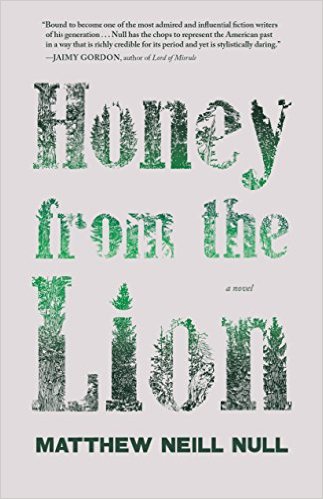
union efforts are foreshadowed as damned from the beginning, and the most politically conscious people are are killed early on. The survivors, including the main character, are apolitical at best. One character sees that the effort is failing here, and goes to the coal fields of southern West Virginia where the unionization has more success, but Null's interest isn't with him, but rather with the texture and violence of the world of timber exploitation.
The novel captures the moment in the late 1800's when outside companies were blithely buying and stripping timber off the mountains. The workers are at once proud of this huge thing they are a part of and aware that what they are doing is ugly and destructive. The point is made that the magnificent spruces and ancient oaks are turning into clothes pins and newspapers that go quickly from today's news to outhouse wiping paper. This is the tragic given--the ground-- of the story Null wants to tell.
One of Null's great successes here is in hinting just enough at the language of a a hundred and thirty years go, and using just enough examples of the material culture to create his world believably and without condescension.
We are told that the main character, Coleman "Cur" Greathouse will live a long life, so we're not too jumpy about him being killed in one of the many violent incidents in the novel. He is presented as a psychological drifter: the great emotional event of his life occurs when he is in his teens, in a triangle among himself, his father, and his father's young second wife. The rest of his life is a kind of drifting search for someone to admire, follow, love.
The book is unapologetically omniscient, slipping easily into various people in the boom town of Helena: a god-ravaged preacher, the "absentees" who own the timber company--as young men, they discovered the vast stands of forest when they were soldiers in the Union army. Now one is a senator, one a judge. They are appealing in their youth and corrupt in their middle age.
I have a couple of quibbles, all in a context of great appreciation and enjoyment. One is that Cur's return to his home place and family is appropriately unhappy, but in a way that seems to me maybe too neat. This may be taste, though. The other quibble is what I mentioned at the beginning, that the whole union organizing/labor wars theme gives no quarter to the workers. You know from the very beginning that the efforts to unionize the timber fields will fail, which is, I assume historically correct. But the organizing scenes are undermined by our fore-knowledge. The most serious union leaders are killed brutally almost immediately, and the most successful action is a free-lance assassination by a character who has been mostly offstage. Again, this is not about accuracy, but it is about Null's choice of what to highlight.
I'm always looking for a different book, I guess, the one in which the characters, unlike attractive but somewhat dim Cur, have a consciousness of history and their own place in it. Denise Giardina managed this in Storming Heaven, and I am probably asking Null for something he had no interest in doing. So read it for the story, the characters, and the wonderful evocation of a semi-frontier world in northern West Virginia in the 1800's.
Two Powerful Books of Poetry
Ghost Dance by Edwina Pendarvis gives an overall impression of wide variety and a deep fund of wit. Pendarvis takes us to the world of legends and myths, and she brings us up close to the texture of our lives. She has enormous range– from light-hearted to heart-rending. The first section is loosely governed by reflections on the Ghost Dance, a religious movement of the Plains Indians at the end of the nineteenth century. The poems in this section include everything from instructions on "How to enter an Iceberg" ("Blue-green popsicle tinting your lips/wearing shoes of fire.) to surviving a bad day "What with Johnny Cash dying ("and George Bush in the White House,/all in the same season./and my son moved out to Utah"). There are also sections called "Phosphors," and others called "Fairy Tales" and "Games" and "Riddles." The luminescent phenomena described in "Phosphors" include morning mist and frost-whitened lawns, New York City seen during a plane landing, a frosted wedding cake, and a snowy rural scene where "as a gate to empty fields/never gives, never yields,/so the spirit takes its form/from each thing that calls it home."
Some of my favorites are probably the short narratives like "Lot's Wife," which is a retelling of that Bible story, and a memory poem called "Paper Dolls" in which Liz Taylor and Mitzi Gaynor join Ann Blythe and Betty Grable– starlets, punched out of cardboard, rocking back and forth on little paper feet from one linoleum square to another.
There is also a very real "Catfish" that reminds me of some of Marianne Moore's work; a charming "Operetta" that is organized by acts; and a sequel to "Twelve Dancing Princesses" called "Twelve Languishing Princes" in which the executed suitors' bodiless heads play an important part.
There are also character poems like the touching observation of what I take to be the poet's child as he/she goes scuba diving. I also especially liked one called "Dovey" about a girl who is the only African-American in her junior high class. She does everything right, is treated badly– and manages to get a subtle revenge. I could go on listing and quoting, which is exactly what a collection like this makes you want to do. This is poetry that is intelligent and rich, clever and beautiful– yet never esoteric. It is an eminently readable collection that deserves a broad audience and wide acclaim.
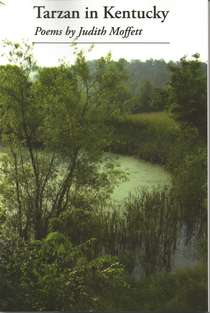
Tarzan in Kentucky: Poems by Judith Moffett is a chewy, sinuous collection of poems by a living poet who went many years without writing poetry, but is--to our great benefit--writing again. Called "An effortless" virtuoso by James Merrill and "among the most accomplished of her generation" by Daniel Hoffman, Moffett writes brilliantly lucid everyday language contained--and freed--by tight forms like tercets and and sonnets. You only notice the form if you are looking-- you feel is the emotion, see the picture, hear the voice and the story. The forms are certainly there, though, giving her poems a musculature that makes much of the free verse we are used to seem flaccid.
The fourth and final section of the book, "Tarzan and the Apes," is a long poem that is part autobiography of the poet (who was raised in Kentucky and southern Ohio in a fundamentalist church), and part history of the human relationship with other primates. It raises the question of whether or not chimpanzees and gorillas are able really to use language, to which question Moffett gives a resounding yes. She writes especially movingly of Kanzi, a bonobo, whose mother Matata has been the subject of language experiments. Matata is removed for "breeding leave," and
Now little Kanzi, frantic,
Runs to the keyboard, heretofore ignored,
To say what no one ever tried to teach him:
Help Kanzi Where Matata Where Matata
In other words the young bonobo, who was not instructed, has learned to keyboard and communicate in English by observing. It's such a brilliant passage, so sad, so straightforward, so quintessentially Moffett. Every poem is worthwhile: a number of them are about her farm, and there is a long section called "Grief" in which she writes about the aftermath of her husband's death. The poet speaks to herself in one called "Broken Couplet:"
Solutions, none. No cures.
This task alone is yours:
to make each day a quest
for getting through it best
when "best" cannot mean "well..."
You feel here what rhyme is about: an arbitrary way of linking things that then makes meaning of what started out as arbitrary. Next after "Broken Couplet" is another long semi-narrative poem also about loss and relationships, in this case about the William Wordsworth-Dorothy Wordsworth-Samuel Taylor Coleridge triangle--written in the meter of "Rime of the Ancient Mariner." Moffett's poem, replete with knowledge of the Romantic poets' circle and the Lake district of England, is called "The Rime of Poor William and The Recluse." She also writes about her mentor and friend James Merrill and about Original Sin and other issues of fundamentalist Protestantism. She writes about dogs and evolution. She writes with a sinewy natural line that gives it all up to us, if we'll only listen.
A FEW SHORTER REVIEWS AND COMMENTS
Nahid Rachlin's novella
Crowd of Sorrows is a gripping and sad story of broken families and damaged children. A woman takes her little girl and leaves her husband. The mother and child move into an apartment complex with lots of other families, and the main character looks out her sliding doors to a common play space and learns more about the lives of her neighbors than she thinks she wants. It is, however, this crowd of people and its sorrows that becomes the center of the story.
One family's child is seriously ill; one mother and child leave and go back to England; there is one troubled boy who hits the others and generally appears dangerous. Meanwhile, the narrator gets a job with a small Turkish/English magazine. Many of her happiest memories during a much-traveled childhood were of Turkey, and she is attracted to her boss, who reminds her of a teenage boyfriend.
The largest event of the novella is when the narrator's daughter goes missing and she has to to face the horrors of failing to keep a child safe. The girl survives intact, but the Turkish magazine folds. The boss wants her to come back to Turkey with him, and there is a resurgence of sense memories in her of how much she loved that place, implicitly comparing it to the bleak sorrows of this northeastern U.S. apartment complex.
I also read
In the Body of the World by Eve Ensler, who is best known as the playwright of
The Vagina Monologues. The memoir starts out being about her activism helping build an institution for women who have survived the horrors of war in the Congo. Soon, however, the book is overwhelmed by Ensler's personal cancer story. On the one hand, it feels wildly wrong to insist on this connection--that she, a first world white woman with a terrible illness somehow represents all the women raped and ravaged in political turmoil. Still, you probably need crazy egomaniacs like Even Ensler as catalysts for action: if the Internet isn't lying, her institution,
The City of Joy appears to be wonderful place .
Finally, Theodore Dreiser's
Jennie Gerhardt, which doesn't get a lot of praise compared to
Sister Carrie and
An American Tragedy. I have a lot against it, but surprised myself in the end by liking it a lot. The main character Jennie is loving and attractive, but a total sap around men: that is, by inclination and training, she does as she's told. There's a kindly but lecherous older bachelor (another U.S. senator!) she has sex with once, and she is immediately pregnant. He dies, and she has the baby, Her stiff-necked German Lutheran father disowns her, but her mother manages to keep her near.
Next, Jennie gets a job as a ladies maid in a fancy society woman's home. Enter Lester Kane, wealthy young scion of a carriage business family, and he decides he wants her: "You're mine," he says repeatedly, and she says no no no and it's really yes yes yes because of the extreme neediness of her family and her own sense of herself as already damaged beyond repair and also her sensuality. Soon she's taking trips with Lester, then being kept by him, then living with him.
The situation is infuriating: marry her you pusillanimous twerp, one shouts at the page. Yet, Lester cares for her in his own arrogant way. He keeps her from getting pregnant, teaches her, dresses her. etc. He becomes more and more attached to her. He just won't marry her. There are are various crises: she keeps her daughter's existence from him; she lies to her father and convinces him, after her mother's death, to move in with her and Lester, and brings the girl too, once she finally confesses. No one ever really deserts Jennie, except by death.
Finally, Lester's father dies and the will has a complicated set of stipulations that essentially force him either to discard Jennie and get lots of money, marry Jennie and get less money, or stay with Jennie without marriage and get no money. Lester spends the entire three years he's given for the decision dithering, but in the end sets Jennie up in style and marries another woman who also adores him. On his deathbed, he calls for Jennie and tells her he made a mistake. He has always loved her. There's a lot of Dreiser's pseudo-philosophy about the essential meaninglessness of life and how we are in the end completely buffeted by fate.
I think I'm telling the whole plot here because I can't imagine that many people will go out and read this--even though it's free or almost free for your e-book. The old fashioned type of womanhood is hard to take, and Dreiser's writing can be clunky, but against all my ideological convictions, I found myself believing this book, partly because of Dreiser's sharp eye for the stupidity of America's borrowed class distinctions.
JOHN BIRCH E-READER REPORT: E-BOOK SALES SLIP, BUT THEY ARE FAR FROM DEAD
I suppose it had to come. For the last year or two I've been telling you that sales of e-books were on the up and up. Well, it seems that's over, at least for the time being. HarperCollins, Simon and Schuster and Hachette, three of the biggest guns in publishing, have recently reported that revenue from e-books declined in their last quarter.
An article last month in the New York Times, boldly headlined E-BOOKS SLIP, AND PRINT IS FAR FROM DEAD quoted Len Vlahos, a former executive director of The Book Industry Study Group as saying that "E-books were this rocket ship going straight up. Just about everybody you talked to thought we were going the way of digital music."
The Times article went on "But the digital apocalypse never arrived, or at least not on schedule. While analysts once predicted that e-books would overtake print by 2015, digital have instead slowed sharply."
That's as maybe, but I wouldn't swap my Kindle for all the tea in China.
READ AND LISTEN ONLINE
Cathy Weiss's website for writers and readers: Check it out! http://www.armoredoxfords.com/
Read John Birch's latest blog post, "A Taste of Sherri."
And more Jack Deacy! Click, then scroll down !
Ingrid Hughes's blog has a story of one woman's journal through serious mental illness.
IRENE WEINBERGER BOOKS:
.
ANNOUNCEMENTS, BOOKS RECEIVED, CONTESTS, WORKSHOPS, READINGS AND MORE.
Evelyn Walsh has won the SEÁN Ó FAOLÁIN SHORTSTORY COMPETITION for her story "White Rabbit !" Also see her work in the current issue of The Hamilton Stone Review.
Just published by Austin Macauley Publishers in London is Alexandra Psaropoulou's long poem with graphic designs, ALL THE STARS. See http://alexandrapsaropoulou.wix.com/books
A Journal of Practical Writing
I've started a web page of posts and articles with practical ideas for writers of prose narrative. Some of these will be short pieces I've written; some will be by other people, such as...missing. Over the summer I readHumdoldt's Gift and I reread The Adventures of Augie March. There are passages and scenes in those books (and in his excellent, short Seize the Day) that are as good as anything written in English since 1900. But--and again, I'm hoping for another opinion on this-I find myself feeling feel the performance, not the experience.
Halfway through my reading Humboldt's Gift(the roman a clef about Delmore Schwartz, who I spoke about in in Issue #179), I wrote in my journal, "Humboldt's Gift has some wildly wonderful scenes but also a lot of attitudes to women that make me want to puke. I can't say I like Saul Bellow, but when he's on, he's really on. There's great long section about the bashing of protagonist Charlie Citrine's Mercedes by a punk criminal wannabe and then a crazy day of Charlie and the same punk running around together.... I get the picaresque–I get the complex relationship between Charlie and Humboldt, I get that Charlie likes getting turned on by women (and that he thinks he loves women, but he only loves sex as far as I can see and maybe some forms of mothering.)"The plot, and especially the plots of the movie treatments Charlie and Humboldt write together for fun, are over the top with what I think is supposed to be comedy and hyperbole, but largely seem angry and weird ...I suppose if you won the Nobel Prize for literature (1976) you must feel at some level like there's something in every thought and idea you have. Still, when he's good, he's very very good: the stuff with Rinaldo Cantabile the punk wanna be gangster, all that is tons of fun. The late passage on the narrator's brother's heart surgery and his love for the brother, crass businessman that he is– that whole long section is almost worth reading the 487 pages for. Maybe."In some ways I liked The Adventures of Augie March better. It too has a crass businessman brother and deals magnificently with the strains between the brothers that are always suffused with love. There are stunning, thick passage of rich detail of his brother's possessions, especially expensive shirts and shoes. Augie has tremendous energy and momentum in its tumble forward, and some memorable characters, especially the Chicago types and eccentrics. There's "Grandma," a Russian Jewish grand dame who lets the impoverished March family live in her apartment and then uses them mercilessly for chores and personal service. There's the paralyzed local businessman/crime boss Einhorn (Bellow is extremely good on the many levels of low lifes and petty criminals) and certain scenes (again) are just super. I especially liked the Depression sequence when Augie goes on the bum and jumps railroad cars with the hobos. He works for a union for a while and helps with organizing a chambermaids' strike, but Bellow drops that in a hurry and sends Augie off to Mexico with a ditzy rich girl who wants to train an eagle to hunt.The lovers' dialogue is often awkward and feels dated. I don't think dialogue is Bellow's strong suit-- he's great on speeches and monologues and internal and external philosophizing. Actually, I liked Augie, at least part of the time. He goes to war in the Merchant Marine, gets married and then torpedo'd, then adrift in a boat with a madman, finally ending up doing illegal import deals and living in Paris. The ending works, and the adventures largely work, and also the wonderful juxtaposition of forties Chicago slang with highly erudite imagery. Still, for all of what works, and all of what is brilliant, I am left cold by something about Bellow: it isn't just the misogyny, either, it's some lack in the personality of the writer (I believe) that he tries to hide in brilliance, in good stories, in vast glossolalian explosions of language. Again, if you're a fan, please 'fess up and tell me where I've gone wrong!Next I want to share an excellent new novel, Honey from the Lion, by Matthew Neill Null. Set in the late nineteenth century timber clearing camps and towns of north central West Virginia, it creates its world convincingly, but is thoroughly twenty-first century in its bleak view of politics and human nature. Nascentunion efforts are foreshadowed as damned from the beginning, and the most politically conscious people are are killed early on. The survivors, including the main character, are apolitical at best. One character sees that the effort is failing here, and goes to the coal fields of southern West Virginia where the unionization has more success, but Null's interest isn't with him, but rather with the texture and violence of the world of timber exploitation.
The novel captures the moment in the late 1800's when outside companies were blithely buying and stripping timber off the mountains. The workers are at once proud of this huge thing they are a part of and aware that what they are doing is ugly and destructive. The point is made that the magnificent spruces and ancient oaks are turning into clothes pins and newspapers that go quickly from today's news to outhouse wiping paper. This is the tragic given--the ground-- of the story Null wants to tell.One of Null's great successes here is in hinting just enough at the language of a a hundred and thirty years go, and using just enough examples of the material culture to create his world believably and without condescension.We are told that the main character, Coleman "Cur" Greathouse will live a long life, so we're not too jumpy about him being killed in one of the many violent incidents in the novel. He is presented as a psychological drifter: the great emotional event of his life occurs when he is in his teens, in a triangle among himself, his father, and his father's young second wife. The rest of his life is a kind of drifting search for someone to admire, follow, love.The book is unapologetically omniscient, slipping easily into various people in the boom town of Helena: a god-ravaged preacher, the "absentees" who own the timber company--as young men, they discovered the vast stands of forest when they were soldiers in the Union army. Now one is a senator, one a judge. They are appealing in their youth and corrupt in their middle age.I have a couple of quibbles, all in a context of great appreciation and enjoyment. One is that Cur's return to his home place and family is appropriately unhappy, but in a way that seems to me maybe too neat. This may be taste, though. The other quibble is what I mentioned at the beginning, that the whole union organizing/labor wars theme gives no quarter to the workers. You know from the very beginning that the efforts to unionize the timber fields will fail, which is, I assume historically correct. But the organizing scenes are undermined by our fore-knowledge. The most serious union leaders are killed brutally almost immediately, and the most successful action is a free-lance assassination by a character who has been mostly offstage. Again, this is not about accuracy, but it is about Null's choice of what to highlight.I'm always looking for a different book, I guess, the one in which the characters, unlike attractive but somewhat dim Cur, have a consciousness of history and their own place in it. Denise Giardina managed this in Storming Heaven, and I am probably asking Null for something he had no interest in doing. So read it for the story, the characters, and the wonderful evocation of a semi-frontier world in northern West Virginia in the 1800's.Books for Readers Newsletter by Meredith Sue Willis is licensed under a Creative Commons Attribution-NoDerivs 3.0 Unported License. Permissions beyond the scope of this license may be available at http://www.meredithsuewillis.com. Some individual contributors may have other licenses.
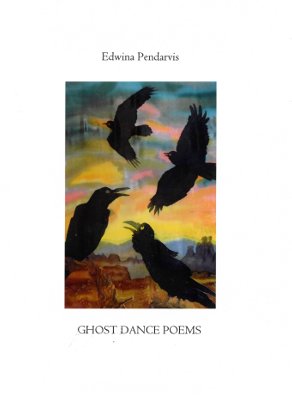

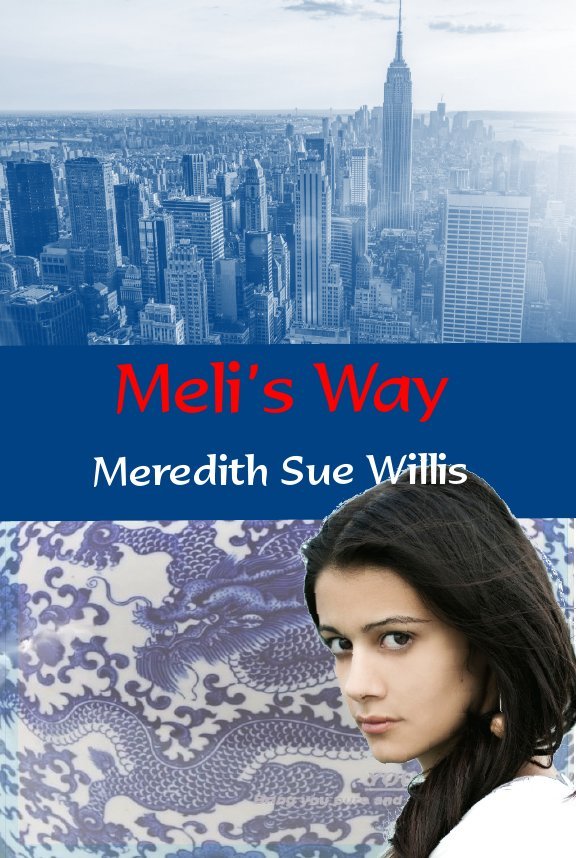
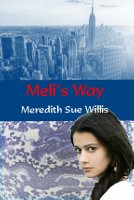


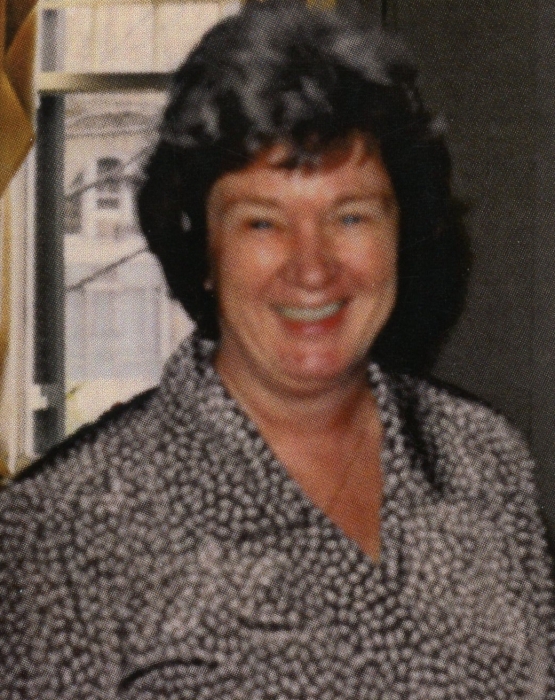
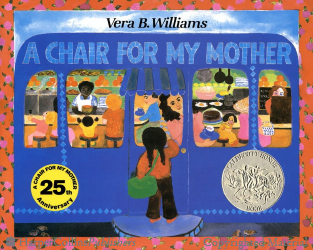

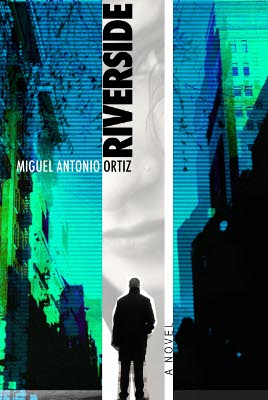
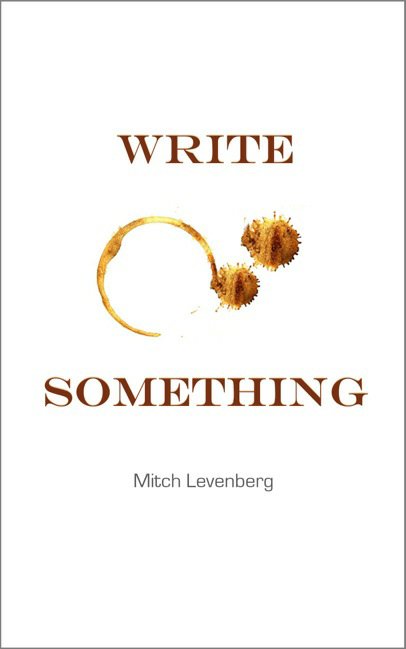
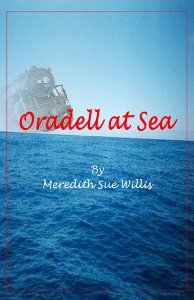

No comments:
Post a Comment